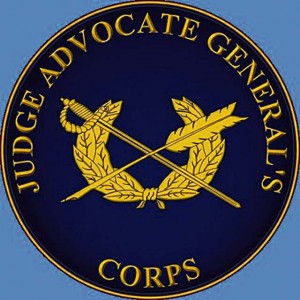Editor’s note: While the following article addresses Army-specific information, FLEP is available to all service members.
Officers interested in obtaining a law degree and becoming a member of the military’s legal team can apply for acceptance into the Funded Legal Education Program.
Each year the Army selects up to 25 active-duty officers to obtain a legal education at no cost to them, after which successful graduates will serve with the Judge Advocate Generals Corps.
 “The FLEP is an invaluable resource for the Army JAG Corps,” said Lt. Col. Eugene Kim, the deputy staff judge advocate for the 21st Theater Sustainment Command. “FLEP enables a participant to remain on active duty with the Army while attending law school. This is an incredible personal and professional benefit, because a FLEP participant continues to earn the pay and benefits of an active-duty officer, and the period during which a FLEP participant is attending law school can be credited toward promotion and retirement purposes.”
“The FLEP is an invaluable resource for the Army JAG Corps,” said Lt. Col. Eugene Kim, the deputy staff judge advocate for the 21st Theater Sustainment Command. “FLEP enables a participant to remain on active duty with the Army while attending law school. This is an incredible personal and professional benefit, because a FLEP participant continues to earn the pay and benefits of an active-duty officer, and the period during which a FLEP participant is attending law school can be credited toward promotion and retirement purposes.”
The requirement is to be either a senior lieutenant or a junior captain, but with less than six years of service, said Maj. Karin Chelluri, officer in charge of the Kaiserslautern Legal Services Center.
“What the JAG Corps is looking for are folks who have had some military experience to help temper our corps,” she said.
Chelluri, who graduated the University of Texas School of Law under FLEP, added that FLEP graduates play a mentorship role to those officers who were directly commissioned into the JAG Corps and have little or no military background.
Having experience dealing with real world legal issues is one advantage FLEP students have over those going straight into law school from undergraduate studies.
“In my law school class, there were several people who were choosing law as a second career and I think the professors always appreciated us because we had much more real world experience,” Chelluri said. “We had already, perhaps, experienced debt, or a foreclosure, or purchased a house and at least had some real world experience with the legal side of life compared with the average college graduate.”
Interested applicants have until Nov. 1 to turn in their completed packet, which includes a memorandum, a copy of college transcripts, and Law School Admission Test scores.
“Prospective applicants who are considering applying for the FLEP should double-check the eligibility requirements for the program to ensure that they satisfy the basic eligibility criteria,” Kim said. “Applicants should also talk with current Army judge advocates so that they can get a first-hand account of the benefits and expectations of a career in the Army JAG Corps.”
“I think you need to approach it with open eyes and understand what the legal profession does,” Chelluri said. “We don’t spend all day in a courtroom; there are a lot of different facets of both the Army profession and the legal profession itself. Once you have a good understanding and that’s the direction you want to pursue, then I think it’s a very fulfilling career. And I think the FLEP program is a fantastic way to do it.
“I think it’s a great program and it’s a great opportunity,” Chelluri added. “If people are a little intimidated or think that it’s a very difficult selection process, it never hurts to try.”
For more information on FLEP and application requirements, visit the service-specific website and search “FLEP.” Air Force members may contact Maj. Joshua Rosen, 86th Airlift Wing Legal Office, at 480-5911.


